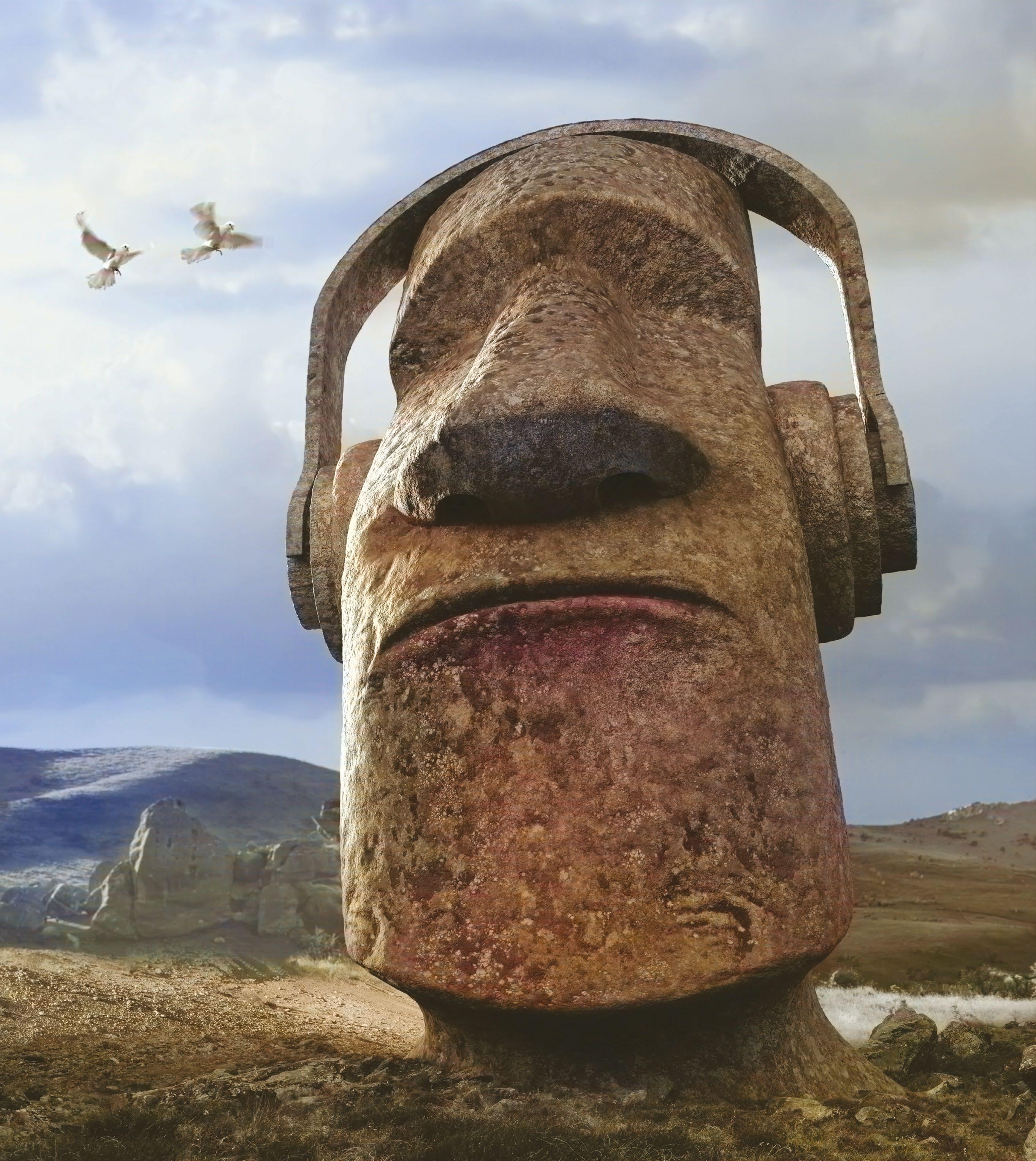
The short answer is no one knows who invented music. No historical evidence exists to say exactly who sang the first song, whistled the first tune, or made the first rhythmic sounds that resembled what people would recognise today as music. However, musicologists (someone who studies the history of music) know that it happened thousands of years ago. Artefacts (objects made by humans) and other evidence can help scientists understand how and why the ancients played music.
The earliest civilisations throughout Africa, Europe and Asia had music. Back then, many humans may have believed it was a divine creation, a gift from the gods. Indeed, gods and goddesses from many religions and mythologies are associated with music. Stories and works of art tell us that the African god Àyàn was a drummer, and the Greek god Apollo played the lyre, an ancient type of string instrument.
Sweet sounds coming down
Some scholars say singing was the first kind of musical sound. Not that people back then were crooning full-length songs. Instead, they made simpler vocal sounds – perhaps just a few notes put together. If that’s true, perhaps early humans began to speak and sing at about the same time.
This story is from the Issue 64 edition of The Week Junior Science+Nature UK.
Start your 7-day Magzter GOLD free trial to access thousands of curated premium stories, and 9,000+ magazines and newspapers.
Already a subscriber ? Sign In
This story is from the Issue 64 edition of The Week Junior Science+Nature UK.
Start your 7-day Magzter GOLD free trial to access thousands of curated premium stories, and 9,000+ magazines and newspapers.
Already a subscriber? Sign In

Are cats smarter than dogs?
They're the UK's top pets, but which is more intelligent? You decide!

Could people turn Mars into another Earth?
Sven Bilén explores how humans might make a home on another world.

FUNNY BY NATURE
Claire Karwowski tracks down the wackiest wildlife that's cracking up the animal kingdom.

WEIRD SCIENCE
A round-up of the strangest science stories from around the world.

Guardians of the forest
Meet the incredible people protecting the Amazon rainforest.

The Mariana Trench
Dive in to find out how far down the ocean goes and what it's really like at the bottom.

Megan McCubbin
Meet the zoologist trying to change people's views of animals with a bad rep.

MAX POWER
From the second you wake up in the morning, your way of life is made possible thanks to the amazing power of electricity.

Your heart has a "brain"
New research by scientists at Sweden, and Columbia University, in the US, suggests that your heart could have its own \"mini brain\".

Ethiopian wolves could be furry pollinators
Sweet-toothed Ethiopian wolves have been seen lapping up nectar have been seen happing up nectar from red hot poker flowers.